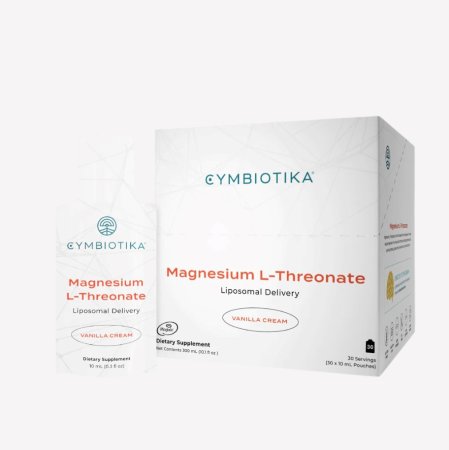The Curator independently decides what topics and products we feature. When you purchase an item through our links, we may earn a commission. Promotions and products are subject to availability and retailer terms.
Menstruation, infertility, birth control—what do these subjects share in common? For years, they’ve been shrouded in taboo. Add women’s hair loss to that list. Despite its prevalence (one in two women experience thinning hair as they enter their forties and fifties), this clinical issue has long been brushed aside, until recently.

“I see a lot of female patients in my practice,” shares Dr. Christina Han, a dermatologist and the medical director of Vancouver-based hair care brand Xyon. “I think that’s reflective of how, societally, it’s not as well accepted as it is for men to have thin hair.” The reality is, luscious locks are highly coveted, and mane maintenance is built into women’s’ everyday beauty routines. It’s the reason, Han suggests, that hair loss is not only physically debilitating for females, but emotionally triggering as well.
Dr. Simon Pimstone, a leading physician and founder of Xyon, points to a shift in the conversation. Call it a revolution sparked by social media or a newfound openness to once-taboo exchanges, “The barriers are slowly coming down,” says the doctor. Treating hair loss like any other medical condition is a step forward in leading that change.
Pimstone’s precious advice: “Early intervention is key.” But where to begin? Ahead, eight useful tips for how to prevent women’s hair loss according to the experts.
Understand the causes
Age plays a significant role. It’s not uncommon for women in their twenties and thirties to experience hair loss around childbirth or pregnancy. Usually, this form of hair loss resolves once hormones stabilize; however, as women approach menopause in their forties or fifties, a genetic form of hair loss called androgenic alopecia, or female pattern baldness, manifests. Instead of receding hairlines and bald patches, women tend to experience diffused thinning on the crown or top of the head.
Underlying health conditions including hypothyroidism, polycystic ovarian syndrome and connective tissue diseases like lupus can also contribute to women’s hair loss. As such, Pimstone suggests that women may need a more comprehensive treatment approach. “Not only do you need to exclude all of these medical conditions, but you may need multiple medicines that approach hair loss from all different angles.”
Since women’s hair loss is a more complex phenomenon, it’s important for women to see the right type of specialist and receive the appropriate treatment. “I’d say family physicians are much less experienced in general at treating women’s hair loss than they are at treating men’s hair loss,” says Pimstone. He recommends that women are better off seeing a dermatologist because they can even perform scalp biopsies if needed.
Care for your scalp
“A healthy scalp is so important, but often neglected,” says Han. “Most of the time, people are only concerned about how their hair is growing, or how it looks.”
So, what does a healthy scalp look like? It’s devoid of inflammation, which shows up as redness, flaking and bumps on the surface, sometimes resulting in itching or burning. Addressing underlying medical conditions like psoriasis and eczema is key to achieving optimal scalp health as well.
“Often, poor scalp health can be due to inflammatory mediators. You want to dampen those,” Pimstone adds. To encourage healthy hair growth, Pimstone suggests opting for ingredients including rosemary, saw palmetto, biotin, caffeine and nettle leaf. Based on laboratory studies, these ingredients are believed to have one of two key benefits: Either they lower the amount of hair loss-inducing dihydrotestosterone toxicity (DHT), or they provide anti-inflammatory benefits to the hair follicles and scalp.

Steer clear of lathery shampoos
For non-prescription products like shampoo and conditioner, the fewer synthetics as possible the better—more specifically, synthetic sulfates and parabens. “These can be toxic ingredients—potentially cancer-causing,” warns Pimstone. Selecting a paraben- and sulfate-free formula provides peace of mind and will keep your scalp and hair feeling happy.
Contrary to popular belief, a shampoo’s efficacy is not determined by its lathering ability. In fact, an abundance of that much-adored lather may indicate the presence of sulfates and other undesirable compounds. But don’t despair—striking a balance is attainable, according to Pimstone. “Somewhere in between, you can still get a decent lather.” While it may not be the most luxurious feel of a shampoo, opting for a milder formula ensures better ingredients for your scalp.



Avoid over-washing
Save your hair and scalp by cutting down on your wash days. The sweet spot? Two to three times a week, according to Pimstone. Just like washing your body too frequently strips the skin of natural oils, so too does washing your hair daily. “Washing your hair too frequently can lead to scalp dryness, itching and flaking. That’s a common thing I see,” says Han. Instead of getting under the shower head next time, opt for a high-quality dry shampoo that’s void of nasty ingredients.

Protein, vitamin and mineral intake matters
“As good as any drug is the stuff we do to our body,” says Pimstone. Nutritional food intake can make all the difference in the health and appearance of one’s hair, especially if it means your body is replete with vitamins, minerals and protein. According to the doctor, deficiency in vitamin D, magnesium and protein has been known to cause hair thinning. Incorporating supplements into your daily routine is an easy way to ensure your body (and hair) is getting the nourishment it needs.



No tight ponytails!
While slicked-back hairstyles are very of the moment, they have potential to cause long-term hair damage. The culprit? Constant tugging leads to traction, and traction alopecia.

Manage your stress levels
“It’s impossible to avoid stress, but we have to learn how to manage it,” says Pimstone. Since stress-release comes in many forms—a yoga workout here, a journaling session there—it’s important to find what gets you in a state of tranquility. A clear mind is also an excellent precursor to a peaceful sleep, which your hair will also benefit from.

Opt for alternative methods
As part of a comprehensive approach, Pimstone says there’s evidence today that suggests low frequency light can be useful in certain conditions—although, it can be expensive. Low level light therapy, also known as red light therapy, emits photons into the scalp tissues that then get absorbed by weak cells, encouraging hair growth. If you’re willing to invest in this form of treatment, know that it offers a safe, non-invasive method to regain or preserve a healthy, full head of hair.






Comments